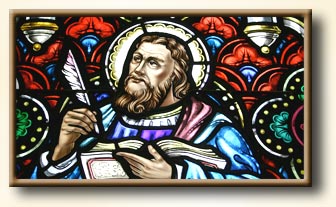|
There is, perhaps, no book of Holy Scripture more familiar and more loved than that of The Psalms. The psalms fit so many moods. They are beautifully expressed. They are so poetic and musical. Phrases from them abound in our literature. The psalms have entered into the very fabric of our life and culture.
They are gathered together in the Book of Common Prayer in a section called The Psalter, which is simply the Bible’s Book of Psalms. Certain psalms are specified and included in the Daily Offices and in other services such as the Visitation of the Sick and the Burial of the Dead. Additional selections are appointed from the Psalter for use for each day of the year in the services of Morning and Evening Prayer. Thus it is principally in Morning and Evening Prayer that Anglicans hear and say the Psalms in a yearly cycle.
In general, psalms are said (or sung) by minister and people together, sometimes in unison, sometimes responsively (minister and people saying alternate verses.) It is important to say them thoughtfully and deliberately, to bring out their beauty of cadence. They are poems, or songs, not rhymed in the western style, but Hebrew poems of special beauty in language, phrasing and rhythm. Their poetry is enhanced by proper reading, which should include a distinct pause as the asterisk between the two halves of each verse.
The Psalms obtain much of their effect from the repetition, or parallelism, as it is called, that marks a great many of the verses. This means simply that what is stated in the first half of a verse is essentially repeated, though in a different way, in the second half. An example: “The heavens declare the glory of God; *and the firmament showeth his handy-work” (Psalm 19, v.1). Sometimes, however, the second half states a complementary or even a sharply contrasting thought.
We noted at the outset that the Psalms fit many moods. There are psalms of praise and of joy, of lamentation and of complaint, of hope and of despair, of instruction and of meditation, of confession and of thanksgiving. Through them all run the themes that God is supreme and powerful, watchful and vigilant, just and merciful.
The non-Anglican who uses the Prayer Book Psalter for the first time or the Anglican who may have reason to refer to the Book of Psalms in the Authorized (King James) Version of the Bible will each experience some confusion and surprise. The language of the psalms in the Book of Common Prayer is often slightly or even sometimes considerably at variance with the language of the psalms in the King James version. This is because of the fact that when the Psalter was put into the first Prayer Book, in 1549, it followed the versions of the Coverdale Bible of 1535 and the “Great Bible” of 1539. This use has continued throughout Anglicanism. There have been some subsequent corrections of poor translations which, however, did not make the Prayer Book Psalter, by any means identical with the text in the King James Bible. Coverdale, though a bishop (of Exeter), was no linguistic scholar and his version was defective in places. But what he lacked in scholarship, he amply made up for in his sense of poetry, rhythm, music and majesty.
But who wrote the psalms in the first place? Modern scholars do not know for sure. It used to be thought that King David was the author; there is now no certainty that his authorship can be assigned to any of these compositions. The Book of Psalms was not written as a unity, by one person. It is a collection of the spiritual outpourings of many mystics, prophets, seers and leaders over a long period of time (but many of the psalms are as recent as the post-Babylonian Exile 587-538 B.C.)
Whoever the authors and whatever the dates, the collection in the Psalter has religious and spiritual insights at once profound and prophetic. These hymns appealed deeply to the Jewish people and were thoroughly familiar to them. Quotations from them were often on Christ’s lips; even on the Cross, He cried out in the words of the first verse of Psalm 22, “My God, my God, why hast thou forsaken me?”
How fortunate we are to have such a spiritual resource still at our command, as it was at the command of the Messiah, enabling us to worship God in every mood of penitence, prayer, praise and proclamation. “O praise the Lord, for it is a good thing to sing praises unto our God; *yea, a joyful and pleasant thing it is to be thankful.” (Psalm 147, v. 1)
|



